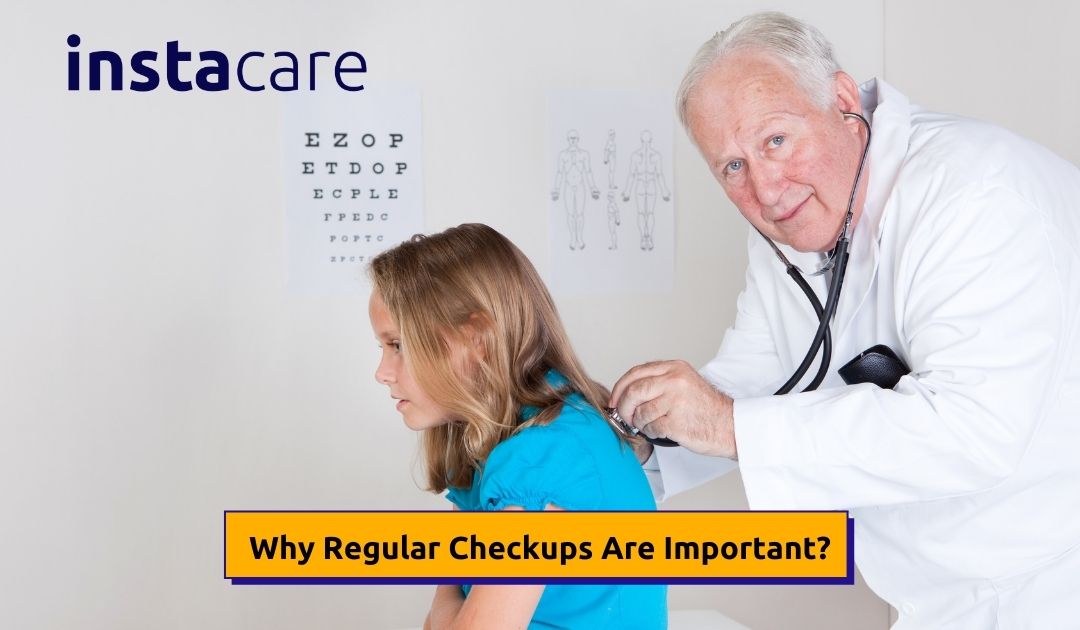Regular Checkups- A Part of Preventive Healthcare
Regular checkups are a part of preventive healthcare- a practice that helps in the early detection and treatment of any disease or condition. Through it, you can get an insight into your health before it becomes difficult to treat. Healthcare providers keep on emphasizing the importance of regular checkups because it reduces the overall load of diseases and deaths in a population. To keep yourself healthy and going, you need to get regular checkups done.
What are Regular Health Checks?
Regular health checks mean visiting a doctor without any complaint. You would go for an examination that can include your height, weight, body mass index, physical examination, skin checks, and so on. The healthcare provider will tell you about the tests you need to get done.
Importance of Regular Health Checks
These regular checkups help in preventing certain conditions like diabetes, hypertension, obesity, colorectal cancer, uterine cancer, and breast cancer. Through it, your healthcare provider can treat the disease at the early stages. Moreover, it will save the cost you would invest in hospitalizations and medications for the treatment later on.
Through early detection of the disease, your healthcare provider can take the right step at the right time. So, you can prepare yourself before the condition becomes worse. For example, if you are overweight and your blood sugar level hikes up a little, you can stop it from turning into diabetes by stop consuming sugar. You can only do that if you keep an eye on your essential parameters. Without it, you can not do that.
Important Healthcare Checkups Test You Need To Get Done
To keep yourself fit and healthy, make sure you get the following tests and screening done.
Blood Pressure
Monitor your blood pressure after every two years if it remains normal and you are below forty years of age. However, if you are above forty years of age, get it checked yearly. If it does not remain under the normal limit, then visit a physician soon as it can lead to stroke or heart attack.
Electrocardiogram (ECG)
During ECG, the healthcare provider would check the rhythming pattern of your heart. It helps in preventing arrhythmias- a condition in which heart rhythm gets disturbed.
Blood Cholesterol Levels
Keeping an eye on your blood cholesterol levels prevents coronary artery diseases, hypertension, and heart attacks. If you are above forty years of age, you must monitor it.
Body Mass Index
Your body mass index would be calculated with the help of your height and weight. It would indicate either you are healthy, overweight, or obese. BMI will help you in reducing the risk of heart diseases and diabetes by eating healthy.
Fecal Occult Blood Test (FOBT)
FOBT helps in the detection of bowel cancer. If you are above fifty years of age, get it once every two years.
Colonoscopy
People who are at risk of colorectal cancer must get their colonoscopy done every five years to screen for it.
Eye Examination
People above sixty-five years of age must go to the eye specialist for their eye examination. It helps in the early detection of many eye conditions like macular degeneration, glaucoma, cataract. Moreover, people who have diabetes must also get their eye examinations done. So, they can be screened for diabetic retinopathy.
Bone Density Test
Men and women above fifty years of age must get their bone density test done to rule out the risk of osteoporosis with the increasing age.
Sexually Transmitted Infection Detection
For early detection of sexually transmitted diseases like syphilis and chlamydia, people should get an evaluation test done.
Checks For Women
Other tests that women should get done are:
- Pap smear- for early detection of cervical cancer
- Mammography- for early detection of breast cancer
Checks For Men
Prostate-Specific Antigen (PSA)
Men should get an evaluation for prostate cancer through a PSA test and digital rectal examination. They should start these screenings at the age of forty to forty-five.
Conclusion
Preventive healthcare is a tool for the early detection of many health conditions. It helps you to stay fit and healthy. Moreover, it saves the cost you would invest in hospitalizations and emergency visits. You and all of your family members must get their regular screening tests done on time for healthy and happy living. If you want to book a test at home, contact InstaCare.


